Actress-comedian Jenny Slate held court in a throne-like chair in one corner of a vast room at the Four Seasons Hotel, looking like a quirky fairy tale princess in her gauzy sky-blue dress, an Audrey Hepburn-style up-do and turquoise nail polish on bitten fingernails.
“I’m sitting in the corner like I’m in trouble,” she quipped.
The perky Slate, 32, was previously best known for getting in her own brand of show-business trouble when she accidentally uttered the f-word in her very first skit on “Saturday Night Live” in 2009 and was let go after that season.
Since that debacle, however, the indomitable comedian has bounced back with roles on TV series including “Bob’s Burgers,” “House of Lies” and “Parks and Recreation,” on which she plays the obnoxious (and Jewish) character of Mona-Lisa Saperstein. “I just love the endless possibilities of how endlessly inappropriate she is,” Slate said.
In Gillian Robespierre’s “Obvious Child” — a Sundance hit that has become one of this year’s most provocative new independent films — Slate plays another member of the tribe: the struggling Brooklyn stand-up comic Donna Stern, who riffs in her raunchy yet somehow adorable act about how she looks like Anne Frank (so does Slate) or a cross between “a bagel store and a synagogue” and that her dishy new WASP beau (Jake Lacy) “is so Christian, he’s like a Christmas tree.”
The comedy follows Donna as she is dumped by a longtime boyfriend, loses her job, has rebound sex with earnest Max (said WASP) and discovers she is pregnant. Then — in a decided departure from most romantic comedy fare — she schedules an abortion on, of all dates, Valentine’s Day.
Robespierre consulted with Planned Parenthood to make the movie, and she even shot in the organization’s New Rochelle, N.Y., clinic, but Slate does not see “Obvious Child” as an abortion comedy.
“The challenge of the whole movie, really, is to say that abortion can be a part of life and is not so taboo that we have to speak in a whisper,” she said. “But we also don’t think it’s a joke, and we don’t treat it glibly or bat it around just to shock. We’ve found the sweet spot where the film is funny because Donna is funny and her lens is comedic.”
The character’s situation, and even her stand-up, belongs to that boundary-less, naval-gazing humor so prevalent in the recent spate of female-centric work epitomized by Lena Dunham’s HBO hit “Girls.”
“Most of my own comedy is also about what it means to be a woman,” Slate said. “I love to talk about all the weird things that are not in control in my body — my stomach issues and horniness in general.”
Her act in real life also riffs on her artsy parents — Mom is a ceramicist, Dad is an award-winning poet — as well as her Judaism. She has described feeling terrified on Yom Kippur that she’s so distracted by all the halitosis spewed by the fasting congregants that she might forget to repent — and thus might get banned from the Book of Life.
“I also have talked a lot about my experience of having sort of typically what you might call Jewish features and what that means when you marry a man from Virginia,” she said of her husband, director Dean Fleischer-Camp. “And how stuck up I was about looking like Anne Frank. I thought that made me superior; when I once went to Boca Raton, all the old people loved me, probably because they were demented and thought somehow I was Anne and I had made it.”
Slate immediately felt the need to apologize after making this edgy joke, but, she insisted, she’s far less brazen in her comedy than the fictional Donna.
“I’m just much more aware of boundaries,” she said. “I wouldn’t get up on stage and talk about my husband in a way that embarrasses him. He’s not mine to use. I’m just not self-destructive in the way that Donna is, or I’ve learned not to be.”
Rather, Slate described herself as an “overachiever” who led a three-hour service for her Conservative bat mitzvah in Milton, Mass., served as her high school’s class president and valedictorian, and earned top grades while studying literature at Columbia University.
“I’m also a classic middle child — continually,” she added. “I need a lot of attention. So, when I do stand-up, there is a part of me that’s like, ‘Look at me, I’m performing. I’m Jenny, I’m a woman, and I’m up here wearing my [usually skimpy] outfit.’ But there’s also a part of me that truly wants to communicate and to give.”
Slate’s aspiration, from early childhood, was “to be on ‘Saturday Night Live’ and to be a movie actress.” She was delighted when her grandfather once told her that “I was going to be a great Jewish actress, like Sarah Bernhardt.”
In 2009, Slate achieved one part of her dream when she joined the “SNL” cast, only to be devastated when she dropped that expletive while playing a biker chick in a skit opposite Kristen Wiig.
“I don’t think I got my confidence back that season,” she said. “Everyone was very nice to me, but I wasn’t nice to myself. … But I’m not apologizing that I swore, because it was just a silly mistake, and it didn’t hurt anybody except for myself, and I’ve come to terms with it.”
Despite Slate’s initial fear that she might never work again, her post-“SNL” career has flourished with television gigs — including playing Paul Reiser’s much-younger-wife-with-Daddy-issues on FX’s upcoming series “Married” — as well as the breakout movie role, starring in “Obvious Child.”
That comedy actually began as a short film in 2009 when Robespierre and her collaborators became frustrated with the depictions of unplanned pregnancies on screen (think “Juno” and “Knocked Up”) that always ended with blissful births.
“We just really wanted to unsilence the one choice that hadn’t been talked about so much in our culture,” said Robespierre, 35, in a separate interview at the Four Seasons, looking like she stepped out of an episode of “Girls,” decked out in a wildly colored dress, jean jacket and black boots.
The filmmaker said she knew she had found her star when she chanced to catch Slate’s act in a free comedy show at the back of a record store in Brooklyn: “Jenny was just this beautiful, funny, smart Jewish lady,” recalled Robespierre, who is also Jewish. “And she was just so open about being a woman — that we have periods and go to the bathroom and such. I also love scatological humor, and she was doling it out in full force.”
For Slate, “Obvious Child” is a chance to portray a character who’s recognizable to her as a woman.
“I haven’t previously had the chance to play somebody that I feel like I know,” she said. “I truly understand Donna’s need to make people laugh, while being fairly vulnerable as a person.”
“Obvious Child” is in theaters now.









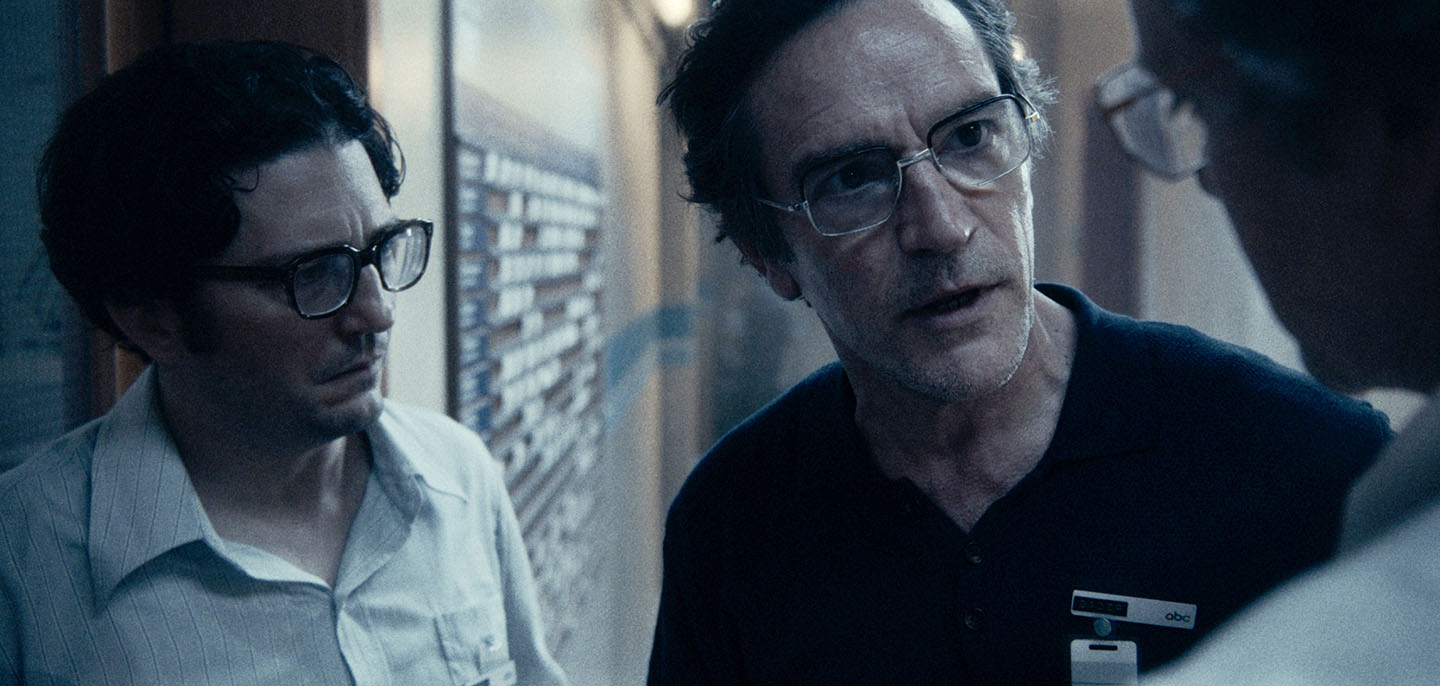


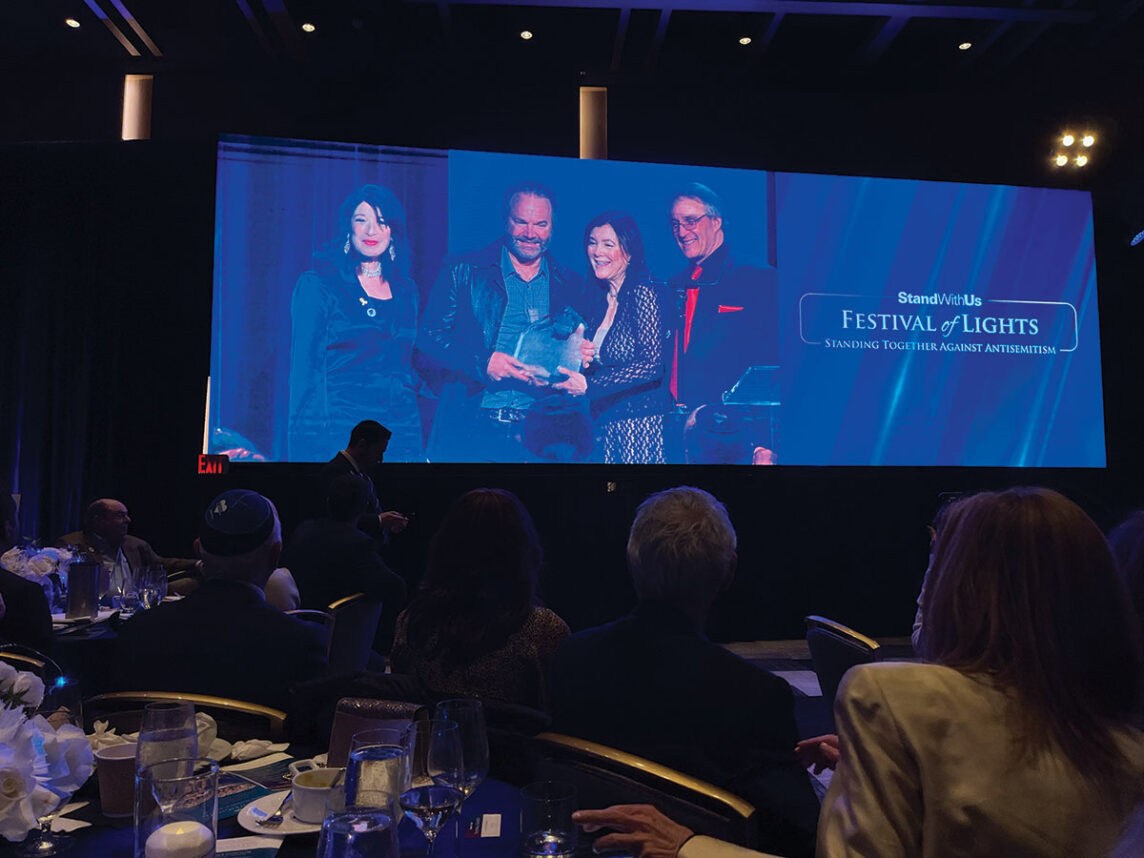
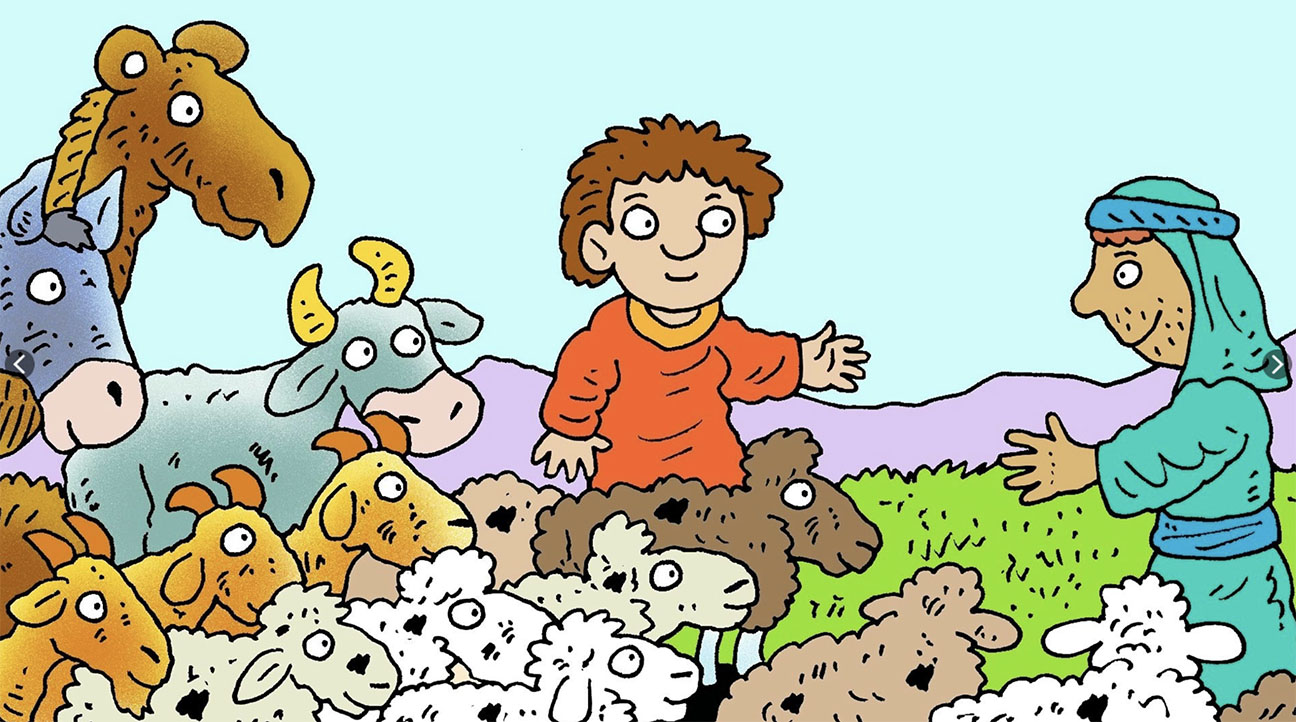
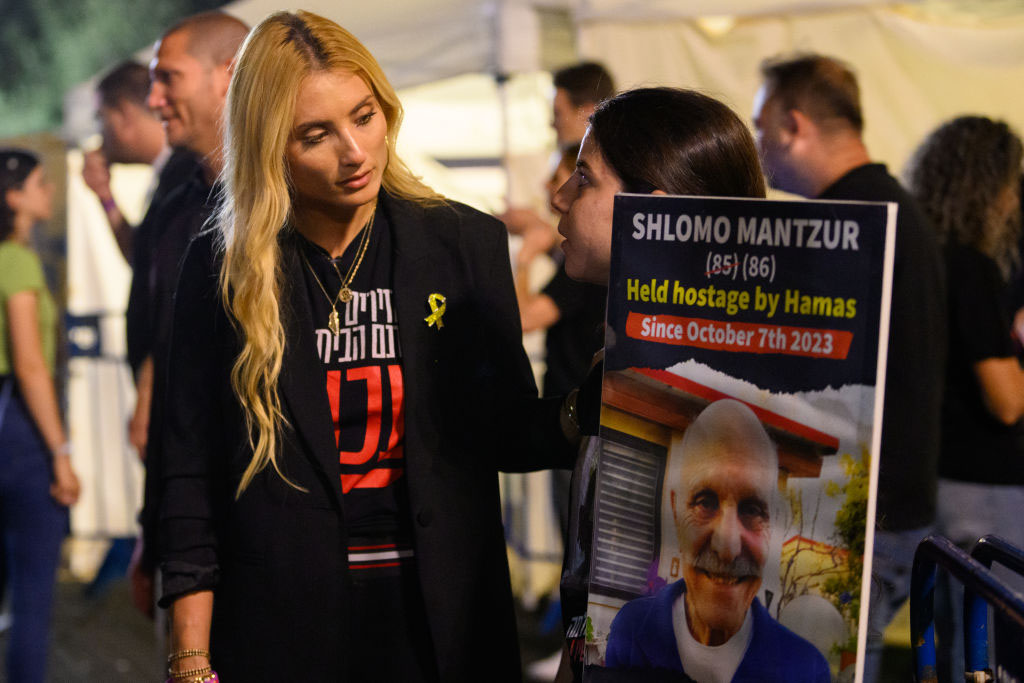
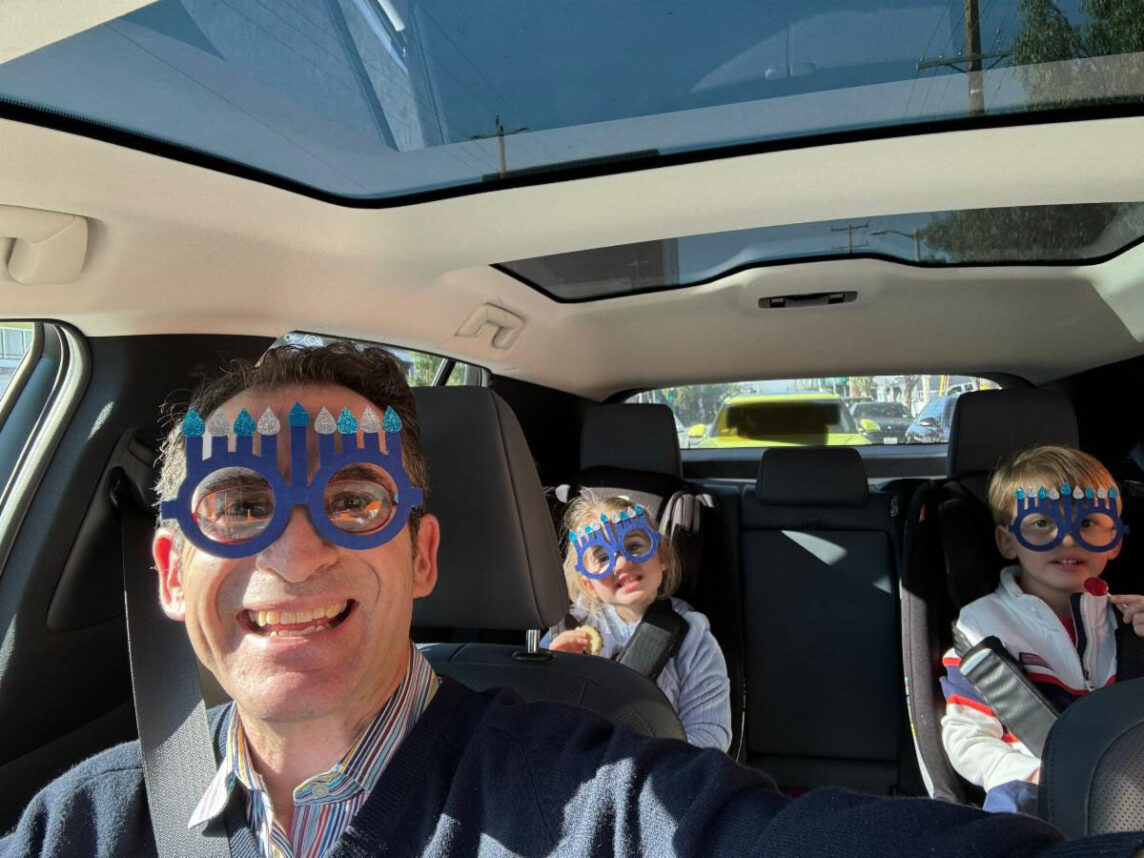





 More news and opinions than at a Shabbat dinner, right in your inbox.
More news and opinions than at a Shabbat dinner, right in your inbox.